Daikin MEA’s Vision for a Greener Food Ecosystem
)
In the dynamic realm of global food systems, Daikin Middle East, and Africa (MEA) is making waves with its innovative and sustainable solutions. As a leading provider of advanced air conditioning solutions, Daikin MEA is committed to delivering superior climate control across the region. A subsidiary of Daikin Industries, Ltd., a global leader with over 100 years of experience, Daikin MEA offers a comprehensive range of energy-efficient air conditioning products, including residential, commercial, and industrial solutions. Headquartered in Dubai and operating in more than 60 countries, Daikin MEA combines cutting-edge Japanese technology with local expertise to meet the unique needs of its diverse market. Dedicated to pushing the boundaries of innovation, Daikin MEA is focused on setting new standards in comfort, efficiency, and environmental responsibility across the Middle East and Africa.
In this exclusive interview, we had the pleasure of speaking with Laila Sahaf, Director of Key Account Business - Regional at Daikin Middle East and Africa. We discussed the company’s approach to enhancing the food supply chain—from the farm to the fork—demonstrating a profound commitment to both environmental stewardship and operational efficiency.
Q. Tell us about Daikin MEA and the solutions it provides to food ecosystems. What recent trends in this space have you observed, and where is Daikin MEA focusing its investments?
From the moment a seed is planted to when food reaches the end consumer in a supermarket, it undergoes several critical stages to ensure it remains fresh, healthy and retains its nutrients. Daikin MEA focuses on every stage of this process—a concept we refer to as "Farm to Fork"—by providing the most sustainable and energy-efficient solutions. Additionally, localisation is a key area of focus. With the growing emphasis on food security, we see massive investments from countries in this area. Daikin is aligning with this trend by localising its operations and manufacturing facilities to better support these efforts.
Q. How does Daikin MEA’s advanced air conditioning technology support climate-smart agriculture, particularly in vertical and rooftop farming environments?
Vertical and rooftop farming are crucial for regions with limited arable land or challenging climates. These farming methods require precise temperature control, which is particularly challenging in the Middle East. Daikin MEA offers solutions that meet farmers' climate control needs, including temperature and humidity regulation. Our sustainable offerings, such as cooling plants, air handling units with advanced control systems, and refrigeration systems for cold rooms, are specifically designed to support the unique demands of these farming environments.
Q. What are the key innovations in Daikin MEA’s cold storage and refrigeration solutions that enhance sustainability and efficiency in the food and beverage industry?
Cold storage is a vital component of the food supply chain, and Daikin MEA has made significant investments in refrigeration solutions to enhance sustainability and efficiency. We incorporate inverter technology and use low-GWP (Global Warming Potential) and natural refrigerants to minimise CO2 emissions. For industrial applications, we also offer ammonia-based solutions. In the retail sector, where cold display units are essential, Daikin provides high-quality solutions in various models and shapes, ensuring that food is presented to end-users in the most efficient and sustainable way.
Q. How does Daikin MEA integrate climate intelligence into its systems to optimise conditions for controlled-environment agriculture?
Daikin MEA offers comprehensive solutions that integrate advanced controls and IoT capabilities, which are essential for optimising and maintaining efficient systems. Our systems are equipped with state-of-the-art control systems and can connect to cloud or remote monitoring platforms. For example, some of our cooling systems continuously monitor outdoor temperatures and adjust their power usage accordingly, resulting in energy savings of at least 30% compared to traditional methods.
Q. In what ways do Daikin MEA’s energy-efficient systems reduce the environmental impact of agricultural operations and promote sustainable farming practices?
Daikin MEA reduces the environmental impact of agricultural operations through three main approaches:
- Technologies and Products: We use inverter technology to reduce energy consumption and incorporate natural or low GWP refrigerants in our units.
- Solutions and Localisation: We implement energy management practices, utilise renewable energy, and localise our manufacturing to reduce CO2 emissions from freight and shipment.
- End-of-Life Management: We offer recycling, retrofitting, and refrigerant reclamation through our "Loop by Daikin" initiative, ensuring that even end-of-life equipment is managed sustainably.
Q. At Gulfood Green, what specific technologies or solutions will Daikin MEA be showcasing, and how do these innovations benefit the food and beverage sector’s push towards sustainability?
We will be showcasing our capabilities in Applied Business (Chillers, Air Handling Units), Controls, Modular Chiller Plants, and our full refrigeration lines. These solutions are designed to meet the growing demand for sustainability in the food and beverage sector, helping businesses reduce their environmental footprint while enhancing operational efficiency.
As Daikin MEA continues to push the boundaries of technology and sustainability, its role in shaping a greener food ecosystem becomes increasingly significant. Through its innovative solutions and strategic investments, Daikin MEA is not just responding to trends but actively driving the future of sustainable agriculture and food security.
Join Daikin MEA at Gulfood Green from the 24 – 26 September 2024 at the Dubai World Trade Centre. Find them at Hall: Za'abeel Hall 2 Stand: Z2-74. Register today at www.gulfoodgreen.com

